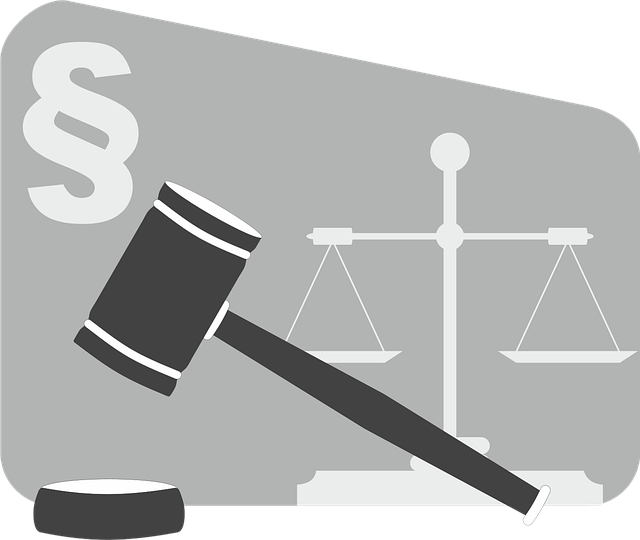Regulatory compliance is a critical challenge for all industries, with one significant hurdle being the escalating cost to defend against libel claims. These legal battles, often complex and resource-intensive, can devastate businesses financially and reputationally. To mitigate these risks, organizations must implement robust internal controls, regular audits, employee training, and strong corporate governance—best practices that not only prevent legal issues but also showcase ethical conduct. Adhering to these strategies helps avoid costly penalties, high defense costs, and potential damage to public image, ensuring long-term sustainability in a dynamic regulatory landscape.
Navigating regulatory compliance is more than a legal necessity—it’s a cornerstone of business success. In today’s intricate corporate landscape, understanding and adhering to ever-evolving regulations can mean the difference between thriving and collapsing under the weight of legal repercussions. This article delves into the critical aspects of regulatory compliance, exploring common issues across sectors, the significant financial burden of defending against libel claims, effective risk mitigation strategies, and valuable lessons from high-profile non-compliance cases.
- Understanding Regulatory Compliance: The Foundation of Business Success
- Common Compliance Issues Across Industries: A Comprehensive Overview
- The Financial Burden: Cost to Defend Against Libel Claims and Their Impact
- Strategies for Mitigating Risks and Ensuring Long-Term Sustainability
- Case Studies: Lessons Learned from High-Profile Regulatory Non-Compliance Cases
Understanding Regulatory Compliance: The Foundation of Business Success

Regulatory compliance is a cornerstone for any successful business operation. It involves adhering to laws, rules, and guidelines set by governing bodies to ensure fair practices and protect consumers. Understanding these requirements is essential to avoid costly legal battles, such as defending against libel claims, which can significantly impact a company’s financial health. By proactively navigating regulatory landscapes, businesses can mitigate risks and foster trust among stakeholders.
Moreover, compliance goes beyond avoiding legal repercussions; it drives sustainable growth. Effective compliance programs safeguard companies from potential white-collar and economic crimes, reducing the likelihood of lengthy jury trials. This, in turn, fosters a culture of integrity, enhances corporate reputation, and supports long-term success in an increasingly regulated business environment.
Common Compliance Issues Across Industries: A Comprehensive Overview

Regulatory compliance issues are a common concern across various industries, with several recurring challenges that demand attention. From financial institutions to healthcare providers, companies often face hurdles in adhering to a web of complex regulations designed to maintain integrity and protect consumers. One prominent area of concern is the rising cost to defend against libel claims, which can significantly impact an organization’s reputation and financial health.
White-collar and economic crimes, such as fraud and money laundering, have become increasingly sophisticated, making it challenging for companies to stay ahead of regulatory demands. These crimes often span across the country, involving intricate financial networks and requiring a thorough understanding of all stages of the investigative and enforcement process. As regulations evolve to combat these offenses, businesses must invest in robust compliance programs to mitigate risks, ensuring they remain competitive while navigating the ever-changing legal landscape.
The Financial Burden: Cost to Defend Against Libel Claims and Their Impact

The financial burden associated with defending against libel claims can be substantial, placing a significant strain on businesses and individuals alike. These legal battles often involve intricate investigations, expert testimony, and extensive document production, all of which come at a considerable cost. The process can be particularly challenging due to the all-encompassing nature of libel laws, which apply across the country and require thorough understanding and adherence throughout all stages of the investigative and enforcement process.
Avoiding indictment is a primary concern, as even unsuccessful libel defenses can result in substantial legal fees. The impact extends beyond financial loss; it can also damage reputations and deter potential business opportunities. Moreover, the emotional toll on those facing such claims cannot be understated, adding another layer of complexity to what is already a demanding experience.
Strategies for Mitigating Risks and Ensuring Long-Term Sustainability

In navigating regulatory compliance issues, strategic planning is paramount to mitigate risks and ensure long-term sustainability. Organizations should invest in robust internal controls and regular audits to identify and rectify non-compliance early. Additionally, staying abreast of legislative changes and industry best practices can significantly reduce the likelihood of costly penalties or legal repercussions, such as the high price tags associated with defending against libel claims.
A comprehensive risk management strategy includes implementing strong corporate governance, training employees on regulatory requirements, and fostering a culture of compliance. These measures not only help avoid indictments but also demonstrate a commitment to ethical business practices. An unprecedented track record of successful general criminal defense can be achieved by consistently adhering to these strategies, enhancing an organization’s resilience against legal challenges.
Case Studies: Lessons Learned from High-Profile Regulatory Non-Compliance Cases

In recent years, several high-profile cases have served as stark reminders of the severe consequences that can result from regulatory non-compliance. These case studies highlight the importance of understanding and adhering to legal and industry standards to avoid significant financial and reputational damage. For instance, a prominent example involves a multinational corporation accused of white-collar and economic crimes, leading to massive fines and a substantial cost to defend against libel claims. The company’s failure to maintain robust internal controls and comply with regulatory requirements resulted in a lengthy legal battle and lasting impacts on its operations.
Through these incidents, businesses can learn valuable lessons about the need for comprehensive compliance programs. Achieving extraordinary results in regulatory matters requires proactive measures, including regular audits, employee training, and transparent reporting structures. By addressing potential risks proactively, organizations can mitigate the likelihood of costly legal disputes, protect their public image, and ensure long-term sustainability.
Regulatory compliance is not just a legal requirement; it’s a cornerstone of sustainable business success. By understanding common issues, bearing in mind the financial burden of libel claims, and adopting effective risk mitigation strategies, businesses can navigate regulatory landscapes with confidence. The case studies presented highlight the real-world consequences of non-compliance, underscoring the importance of proactive measures. Embracing these lessons offers a path to long-term success, ensuring that businesses remain resilient in an ever-changing regulatory environment, while mitigating the significant costs associated with defending against libel claims.






